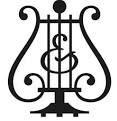Singapore Piano Tuning
Singapore Piano Tuning: Maintaining Harmony in the Lion City
In Singapore's bustling cityscape, the sound of a well-tuned piano resonates as a symbol of harmony and precision. Whether it's in homes, concert halls, schools, or music studios, the piano remains a cherished instrument, known for its versatility and ability to convey deep emotions. To preserve its beautiful sound, regular piano tuning is essential. This article explores the importance of piano tuning in Singapore, what it involves, and how to find the right tuner for your instrument.
Why Piano Tuning is Essential
A piano is a delicate instrument, with over 200 strings stretched at high tension and a soundboard made of wood, which is highly sensitive to environmental changes. In Singapore, the humid tropical climate poses unique challenges for piano owners. High humidity can cause the wooden components to swell, affecting the piano's pitch and overall performance. Regular tuning ensures:
1. Consistent Sound Quality: A well-tuned piano produces clear, harmonious notes, ensuring that every key sounds as it should.
2. Instrument Longevity: Proper maintenance prevents unnecessary wear and tear, extending the life of the piano.
3. Better Playing Experience: For students, hobbyists, and professional musicians, a tuned piano is more enjoyable and easier to play.
How Often Should a Piano Be Tuned in Singapore?
In general, piano manufacturers recommend tuning a piano every 6-12 months. However, in Singapore's climate, more frequent tuning may be necessary, particularly for new pianos or instruments located in environments with fluctuating humidity. Here are some general guidelines:
- New Pianos: Require tuning 3-4 times in the first year as the strings stretch and settle.
- Regular Use: A piano used for daily practice should be tuned at least twice a year.
- Performance or Studio Use: Pianos used for performances or recording should be tuned more frequently, sometimes before each session.
What Happens During Piano Tuning?
Piano tuning is a meticulous process that involves adjusting the tension of each string to achieve the correct pitch. Here's what a professional tuner typically does:
1. Assess the Piano: The tuner evaluates the current pitch, checks for structural issues, and determines if a pitch correction (raising or lowering) is needed.
2. Adjust the Strings: Using a tuning hammer, the technician carefully adjusts each string to align with the standard pitch (usually A440 Hz for concert pitch).
3. Fine-Tune for Harmony: The tuner ensures all strings are balanced, producing a harmonious sound across the entire keyboard.
If the piano has been neglected or exposed to significant humidity changes, the tuner may need to perform a pitch raise before fine-tuning.
Choosing the Right Piano Tuner in Singapore
Finding a skilled and reliable piano tuner is crucial for maintaining your instrument. Here are some tips:
1. Look for Certification: Choose a technician with qualifications from organizations like the Piano Technicians Guild (PTG) or similar bodies.
2. Experience with Local Conditions: A tuner familiar with Singapore's climate can provide better advice and maintenance for your piano.
3. Read Reviews: Check online reviews or ask for recommendations from music schools or other piano owners.
4. Specialization: Ensure the tuner has experience with your type of piano, whether it's an upright, grand, or digital model.
Tips for Maintaining Your Piano in Singapore's Climate
Beyond regular tuning, here are some ways to protect your piano in Singapore's humid environment:
1. Control Humidity: Use a dehumidifier or a humidity control system to maintain a stable environment for your piano. Ideally, humidity should be around 42%.
2. Proper Placement: Place the piano away from direct sunlight, air conditioning vents, or areas with high moisture, like kitchens or bathrooms.
3. Regular Cleaning: Keep the keys and exterior clean to prevent dust and debris buildup.
4. Play Regularly: Regular use helps keep the piano in good condition, as it prevents parts from becoming stiff or stuck.
Conclusion
Regular piano tuning is an essential part of owning and maintaining a piano in Singapore. By keeping your instrument in tune, you can enjoy its rich tones and ensure it remains in excellent condition for years to come. Whether you're a casual player or a professional musician, investing in professional piano tuning services is key to preserving the magic of music in the Lion City.

Book Appointment
Book a piano tuning appointment with us through the WhatsApp. We will get back to you within an hour.

Piano Tuning
Our piano tuner will visit your place for piano tuning. All tuning fees are transparent.

Repair Service
We also provide basic piano repair services. Do contact us back if you have any questions.
Piano Tuning Fee
Upright Piano Tuning
$80
Grand Piano Tuning
$120
Major Tuning*
extra $10-$20
*This happens when piano is severely out of tune due to moving, irregular tuning and maintenance.









